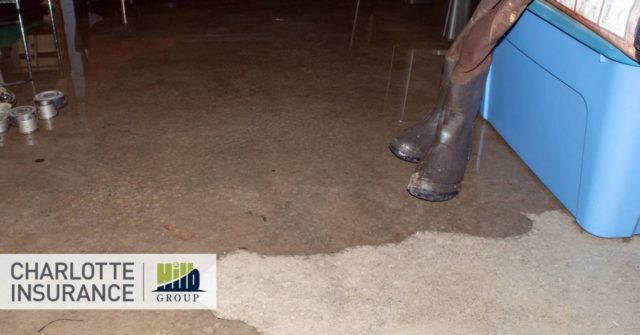No one wants to think about sewer lines, waste, and a sewage backup. We wash things down sink drains and flush toilets to make sure we don’t have to think about it. Sewage is gross.
What’s grosser still is a sewage backup. Finding yourself ankle deep in sewage in your basement, bathroom, or front yard is a homeowner’s nightmare. Sewer backup insurance won’t stop all backups but it will help you deal with the grossness when it happens.
Here’s what you need to know.
What About Your Homeowners Insurance?
Under no circumstances will a standard homeowners policy cover sewage backup. In certain specific instances it might cover sewer line repair. But getting the sewage out of your home and everything cleaned up will be your responsibility.
You can add sewer backup coverage to your existing policy through a rider, endorsement, or add-on. The problem, though, is that these add-ons tend to provide fairly limited coverage. In a major backup, it likely won’t be enough to cover all the damage.
You may have flood insurance but don’t count on it to help you with a sewage problem. Any sewer backup flooding that’s directly tied to the septic won’t be covered under a flood insurance policy.
You Need Sewer Backup Insurance
Sewer backup insurance is made for the ultimate in grossness – a sewage backup in your home.
- It covers standing sewage in your tub, toilet, basement, or anywhere in your home.
- Some policies may also pay for the repair of your sewer line, up to where you connect to the city lines, depending on the cause of the damage.
- Your policy may also pay to get the sewage and water out of your home.
A policy likely won’t cover any damage to the sewer lines that occurred through a lack of maintenance. There are ways to prevent problems and if a lack of care led to the damage, your claim might not be paid.
Sewer backup policies also won’t cover standing sewage if it’s determined the problem was the fault of your city or municipality. You will need to work with them to get the costs covered.
Who Needs Sewer Backup Insurance
In short, everyone needs sewer backup insurance. If your home is brand new and your pipes are plastic, you may have some time before damage to sewer lines is a concern, but not as much time as you think. Clogs can lead to sewer backups, too, and those happen easier and faster than you realize.
Who needs sewer insurance right now?
- Anyone in a home that was built in the 1970s or earlier.
- Anyone with trees and shrubs near your sewer lines.
- Anyone in a home on a wooded lot
In these cases, tree roots may have had time to grow into the sewer lines and the sewer lines are old enough to be more easily damaged.
But if you want to give yourself peace of mind, purchase sewer backup insurance even if your home is newer or your lot has no trees.
How to Prevent Sewer Backups
Even with the best insurance coverage money can buy, no one wants a sewage backup in their home. Here’s what you can do to help prevent it in the first place:
- Dispose of grease correctly. Don’t pour it down the drain. Instead allow it to cool in a container and then throw it away.
- Only flush waste and toilet paper. Never flush diapers, feminine hygiene products, or even wipes labelled “flushable.”
- Maintain, repair, and replace your sewer lines as needed. An annual inspection of your sewer lines by a plumber is recommended.
- Install a backwater prevention valve. This will allow the sewage to go out without letting it come back in.
Ready to protect your home from the high cost and grossness of a sewer backup? Contact Charlotte Insurance today for a free quote on a sewer insurance policy!

